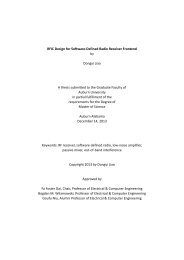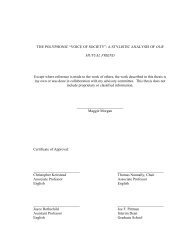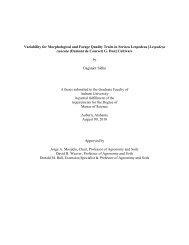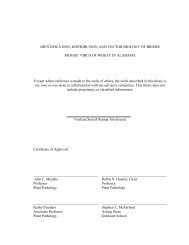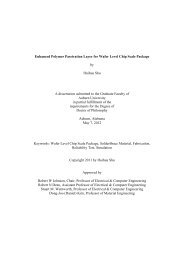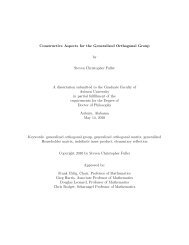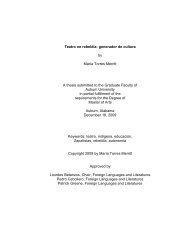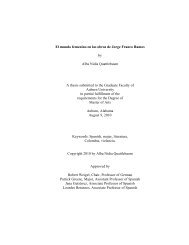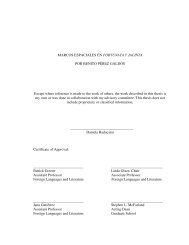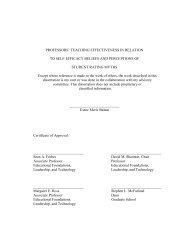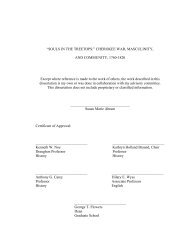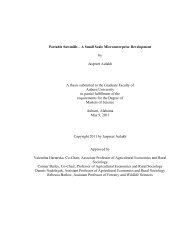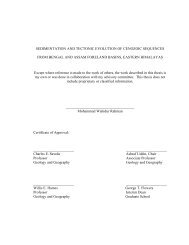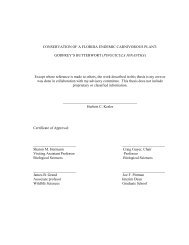the trouble with gender in othello - Auburn University Electronic ...
the trouble with gender in othello - Auburn University Electronic ...
the trouble with gender in othello - Auburn University Electronic ...
Create successful ePaper yourself
Turn your PDF publications into a flip-book with our unique Google optimized e-Paper software.
is <strong>the</strong> threat to his <strong>gender</strong> performance caused by <strong>the</strong> known and suspected<br />
disruptive actions of O<strong>the</strong>llo. That it is <strong>the</strong>se disruptions can be seen <strong>in</strong><br />
explanations that Iago offers as his motives: that O<strong>the</strong>llo passed over Iago for<br />
promotion, refus<strong>in</strong>g to follow <strong>the</strong> “old gradation, where each second/stood heir<br />
to <strong>the</strong> first” (I.i.39) and that O<strong>the</strong>llo may have slept <strong>with</strong> Emilia. O<strong>the</strong>llo disrupts<br />
<strong>the</strong> way th<strong>in</strong>gs are supposed to be. Iago cannot tolerate that, and he uses<br />
Desdemona’s aforediscussed transgression of <strong>the</strong> patriarchy as a means of<br />
punish<strong>in</strong>g O<strong>the</strong>llo for his social and sexual transgressions, (known and<br />
suspected). That it is <strong>the</strong> disruptive actions of O<strong>the</strong>llo (and Desdemona) that<br />
Iago is mentally unable to bear, that must be stopped, is seen by <strong>the</strong> fact that Iago<br />
chooses to prosecute O<strong>the</strong>llo, and not Emilia, for <strong>the</strong>ir suspected adultery. While<br />
Iago is horrified by even <strong>the</strong> suspicion of adultery, Emelia has at least followed<br />
Iago’s “script” for women. (behav<strong>in</strong>g as a ‘huswife <strong>in</strong> her bed’). Therefore, it is<br />
O<strong>the</strong>llo who has caused <strong>the</strong> (supposed) disruption. .<br />
One can never be sure which (if any) of Iago’s justifications for his virulent<br />
hatred of O<strong>the</strong>llo are Truth; but it seems that <strong>the</strong>re must be an element of truth <strong>in</strong><br />
<strong>the</strong> reason given <strong>in</strong> soliloquy, O<strong>the</strong>llo’s possible adultery <strong>with</strong> Emilia because<br />
soliloquies are meant, <strong>in</strong> large part, to be viewed as externalized <strong>in</strong>ternal<br />
monologue, it seems a fair assumption that what a character says <strong>in</strong> soliloquy,<br />
<strong>the</strong>refore, can be (at least to some extent) trusted as <strong>in</strong>dicative of <strong>the</strong> reasons Iago<br />
himself believes, though certa<strong>in</strong>ly as proof of actual adultery by Emilia and<br />
28



